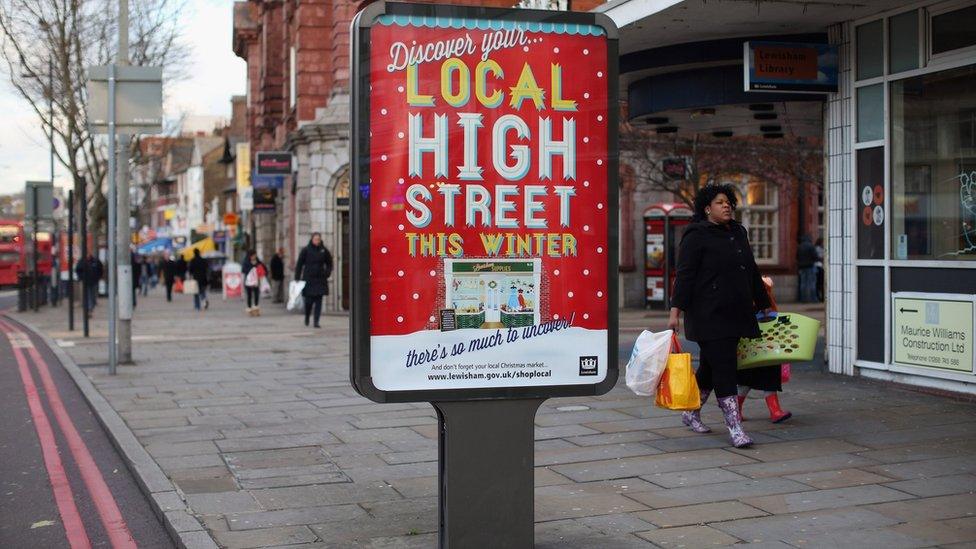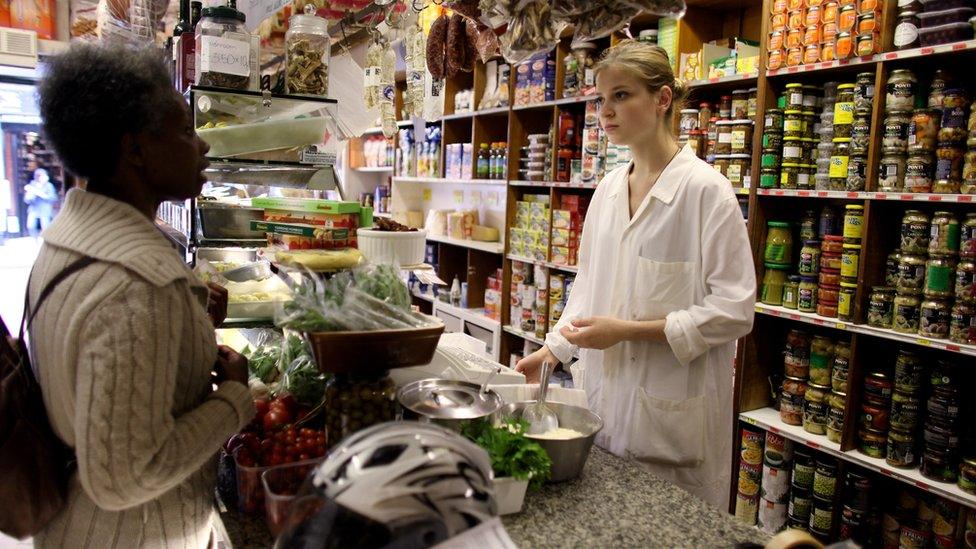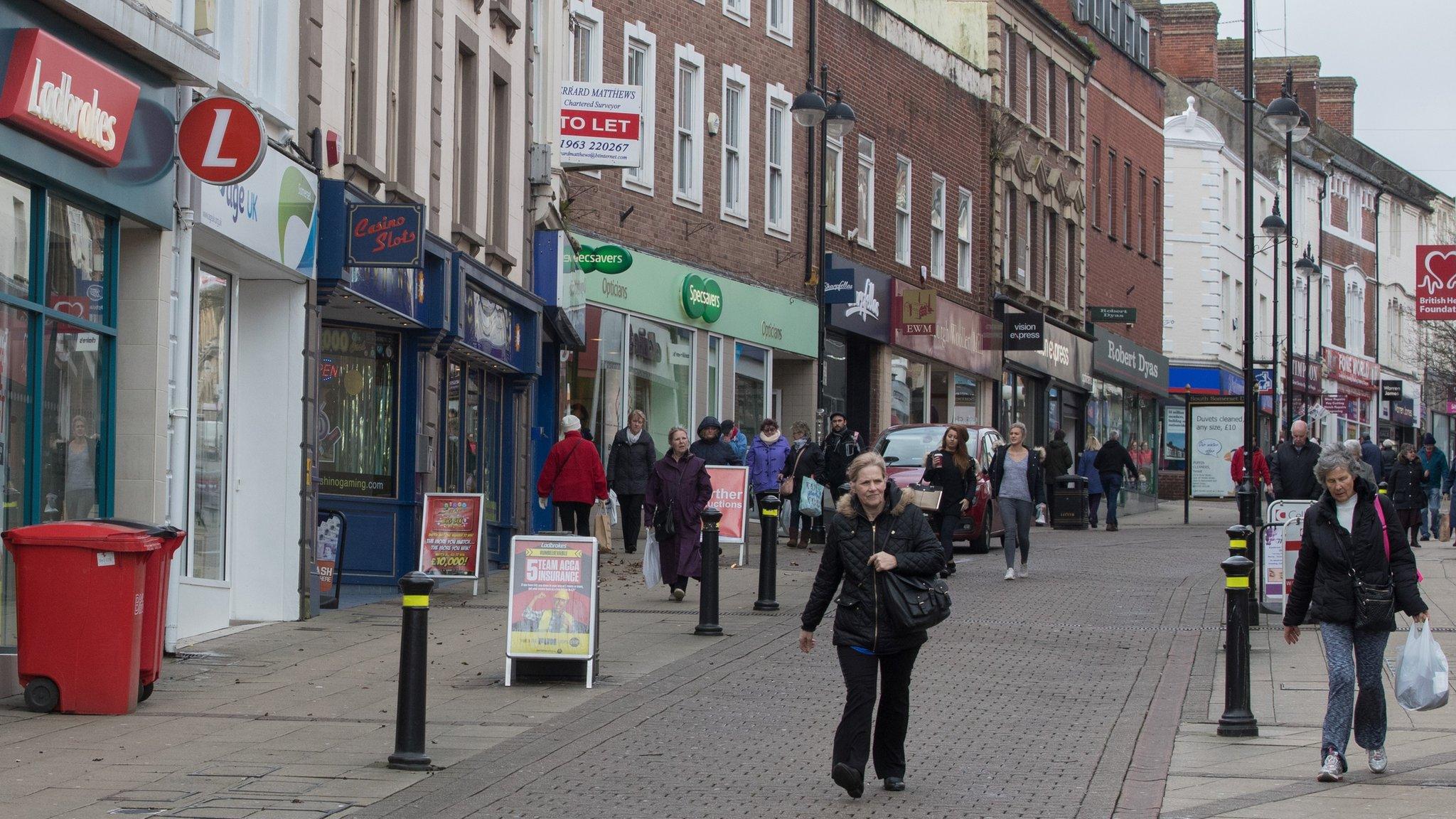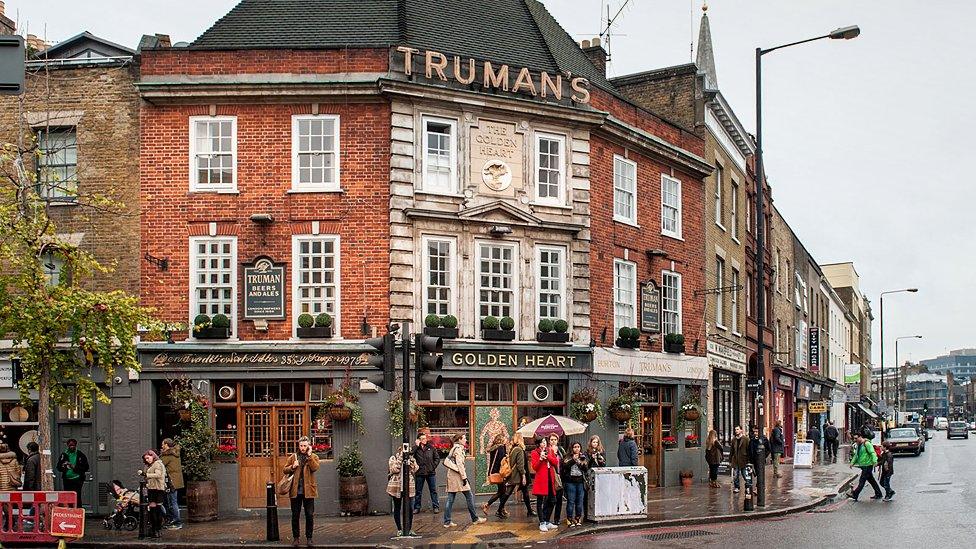Business rates: Sainsbury's boss urges 'fundamental reform'
- Published

The chief executive of Sainsbury's has called for "fundamental reforms" to business rates, amid concerns increases could spark High Street store closures.
Mike Coupe called the system, pegged to property valuations, "archaic" and ignored the rise of online shops based in out-of-town warehouses.
From April the effects of the rate revaluations will be felt and business groups have been asking for help.
The government says the majority of firms will pay the same or less.
Authorities in Scotland and Wales have also undertaken revaluations, the effects of which will also be felt in April.
Companies with properties concentrated in the south-east of England and urban centres are likely to be disproportionately impacted by the first revaluation since 2010.
Retailers in some areas could face rises of up to 400%.
But the government says although more than 500,000 businesses will see their rates increase, 1.34m will see a fall or no change.
Reality Check: Are there more winners than losers on business rates?
Mr Coupe, boss of the UK's second-largest supermarket chain, urged the government to undertake a wide-ranging review of the way businesses are taxed, highlighting changes in retailing culture.
Mr Coupe said: "The way it currently stands, there is an advantage for those without bricks and mortar operations, so there's a strong case for a level playing field in business rates and taxation more generally.
"Businesses like ours with lots of property and employees face a bigger burden than others."
Referring to the revaluation plans, he said: "As it stands, we could see High Streets face serious challenges and ultimately more closures.
"It could impact investment in places that most need it, in areas of the country where there is already a marginal call on investment."

How are business rates calculated?
Rates are calculated by multiplying the rateable value of a property by a multiplier set by the government. But as property values change over time, rateable values need to be reassessed periodically - usually every five years.
However, this update to property values is two years behind schedule, making it a harder pill to swallow in areas where the price of real estate has been rising.

According to analysts, Sainsbury's will see its annual rates rise to £500m, up from £483m, while internet giant Amazon will see its bill cut.
Rate increases could also hit NHS hospitals in some areas, as well as pubs and hotels.

Mr Coupe has joined the growing row over April's revaluation
On Friday, business groups - including the British Retail Consortium and the CBI - signed a letter asking the government to drop plans to change the process by which firms can appeal against their new rateable value.
Business groups claim it will prevent many firms from appealing at all.
Meanwhile, pubs and restaurants have called on the chancellor to dilute the impact of the changes by providing more transitional relief for the sector.
A government spokesman said: "Nearly three-quarters of businesses will see a fall, or no change, in their business rates as a result of the revaluation.
"The generous reliefs we are introducing mean that 600,000 small businesses are paying no rates at all - something we're making permanent so they never pay these bills again.
"Across the country, there's also a £3.6bn scheme to support companies affected by the business rates revaluation."
- Published17 February 2017

- Published17 February 2017

- Published17 February 2017

- Published13 February 2017
